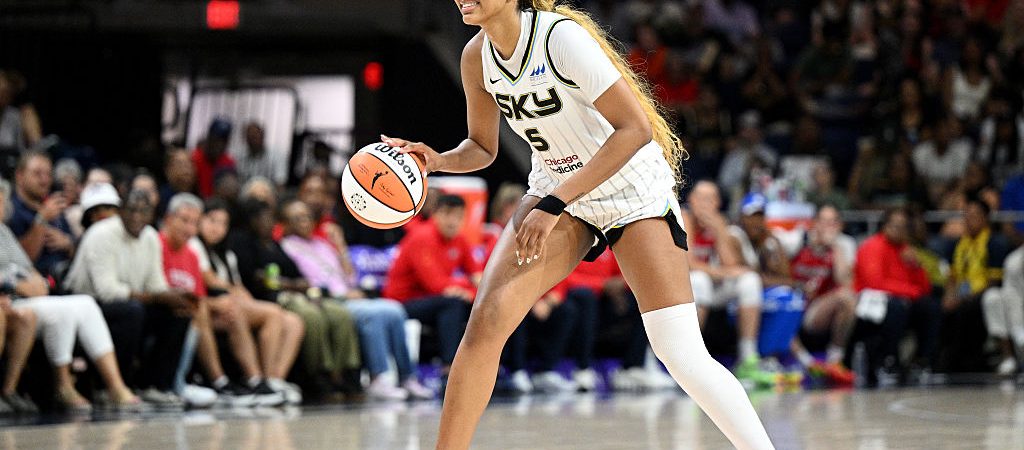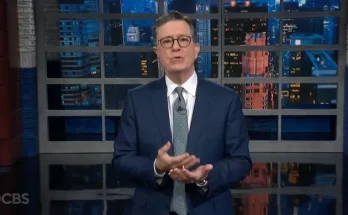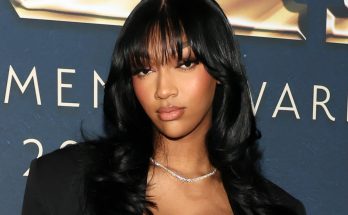WNBA star Angel Reese has called for a boycott of American Eagle, denouncing the brand’s latest ad campaign featuring actress Sydney Sweeney as “disgusting and divisive.”
The comments, made late last night on Reese’s verified X (formerly Twitter) account, have ignited a whirlwind of reactions from fans, fashion insiders, and cultural commentators.
The Flashpoint
American Eagle recently launched a high-profile marketing campaign fronted by Euphoria star Sydney Sweeney. The campaign, featuring a retro Americana aesthetic and playful, provocative styling, has been widely promoted on social media and billboards nationwide.
But for Reese, the imagery and messaging crossed a line.
While Reese didn’t specify which aspects of the campaign she found offensive, sources close to the player suggest she took issue with both the tone and underlying themes of the shoot, which some critics have described as “tone-deaf in today’s climate.”
Backlash and Support
Almost instantly, Reese’s call for a boycott began trending, with hashtags like #BoycottAmericanEagle and #StandWithAngel climbing into the top spots on X. Supporters have praised her for speaking out, citing her history of using her platform to address social and cultural issues beyond basketball.
Critics, however, have accused her of overreacting and unnecessarily targeting a fellow woman in the public eye. “Sydney Sweeney didn’t design the campaign — she’s just the face of it,” one commenter wrote. “Going after her personally isn’t the solution.”
Silence from American Eagle — For Now
As of Thursday morning, neither American Eagle nor Sydney Sweeney has issued a public response to Reese’s remarks. The brand’s official social media accounts continue to promote the campaign without reference to the growing controversy.
Industry experts note that in today’s interconnected media environment, even a single tweet from a celebrity like Reese can cause substantial ripples for a major fashion brand — especially when it connects with larger conversations about representation, messaging, and cultural tone.

The Power and Risk of Athlete Activism
Reese, known as much for her outspoken personality as her dominance on the basketball court, has a track record of using her influence for causes she believes in. Whether advocating for WNBA pay equity or speaking out on cultural issues, she rarely shies away from controversy.
But experts caution that direct boycotts can be a double-edged sword. “This is a high-visibility, high-risk move,” said media analyst Jordan Castillo. “If public sentiment swings against her, it could alienate sponsors and create lasting brand tension. But if she taps into a broader feeling of discontent, she could force American Eagle to respond — or even alter the campaign.”
In a move that stunned both fans and industry insiders, Apple TV+ has quietly canceled Jon Stewart’s The Problem with Jon Stewart, reportedly due to ongoing “creative disagreements” over the show’s political content and editorial independence.
But what was supposed to be a discreet decision to end a single program may now be spiraling into one of the most consequential media flashpoints in recent memory-especially after Stewart’s longtime friend and comedic ally. Stephen Colbert, entered the picture.
According to sources close to the situation, a private meeting between Stewart and Colbert took place in New York on August 4th, just days after Stewart was informed his show would not be returning for a new season.
The two comedy titans, who rose to national fame during their time together on The Daily Show and The Colbert Report, reportedly met at Colbert’s office at CBS headquarters, where discussions went well beyond personal support.
“Something big is brewing,” one source familiar with the meeting said. “They weren’t just catching up. There were producers involved. There were strategy talks. And there was a clear tone of defiance.”
Industry insiders believe the cancellation of The Problem with Jon Stewart may have inadvertently reactivated one of the most formidable partnerships in television history.
Stewart’s show, while critically acclaimed, had increasingly ruffled feathers with segments targeting tech monopolies, military policy, and U.S.-China relations.
Multiple reports suggest that Apple executives became “deeply uncomfortable” with the direction of the show, particularly as it approached topics that could complicate Apple’s global business interests.
But Stewart, never one to bow quietly, may now be preparing to take the gloves off.
“Jon is pissed,” said a former writer on the show. “He spent years out of the spotlight, came back on his own terms, and now he’s being told to tone it down. That’s not who he is and that’s definitely not what brought him back.”
:max_bytes(150000):strip_icc():focal(749x0:751x2)/Jon-Stewart-Stephen-Colbert-072125-657978c87eb244f1896bf86150e7e501.jpg)
What makes this moment more combustible is Colbert’s involvement. While Colbert remains under contract with CBS as host of The Late Show, multiple sources suggest he is “actively exploring” ways to support Stewart-whether through production partnerships, executive backing, or even an entirely new platform.
“There’s no daylight between them,” said a network insider. “If Jon wants to build something new, Stephen will help him do it.”
Speculation is swirling that the pair could launch an independent media venture, similar in spirit to what figures like Tucker Carlson and Bill Maher have done with digital-first platforms.
Some have even floated the possibility of a streaming collective for unfiltered political satire-a direct response to what they see as increasing editorial gatekeeping at legacy networks and major tech-owned platforms.
“There’s a hunger out there for honest, fearless commentary,” said a former Daily Show producer. “And nobody does it better than Jon and Stephen-especially when they’re on the same side.”
Apple has remained tight-lipped about the cancellation, issuing only a brief statement that the decision was mutual and based on “creative differences.”
However, sources close to Stewart deny that version of events, describing tense editorial meetings and mounting pressure to soften criticism of certain global powers. Stewart reportedly refused.
As news of the behind-the-scenes drama leaks into public view, fans have taken to social media to rally around Stewart and Colbert, calling for the creation of a new platform free from corporate interference.
“We don’t need another sanitized comedy show,” one user wrote on X. “We need the Jon Stewart who pissed off presidents.”
For now, the details of whatever Stewart and Colbert are planning remain under wraps. But those close to them say the mood is serious, the motivation is personal, and the scale could be massive.
“They’re not just reacting,” one producer warned. “They’re planning something that could shake up everything-again.”
If the rumors are true, the end of The Problem with Jon Stewart may not be a cancellation at all. It might be the opening shot of a new era one that could redefine the boundaries of political comedy, independent media, and who really controls the conversation on American television.




